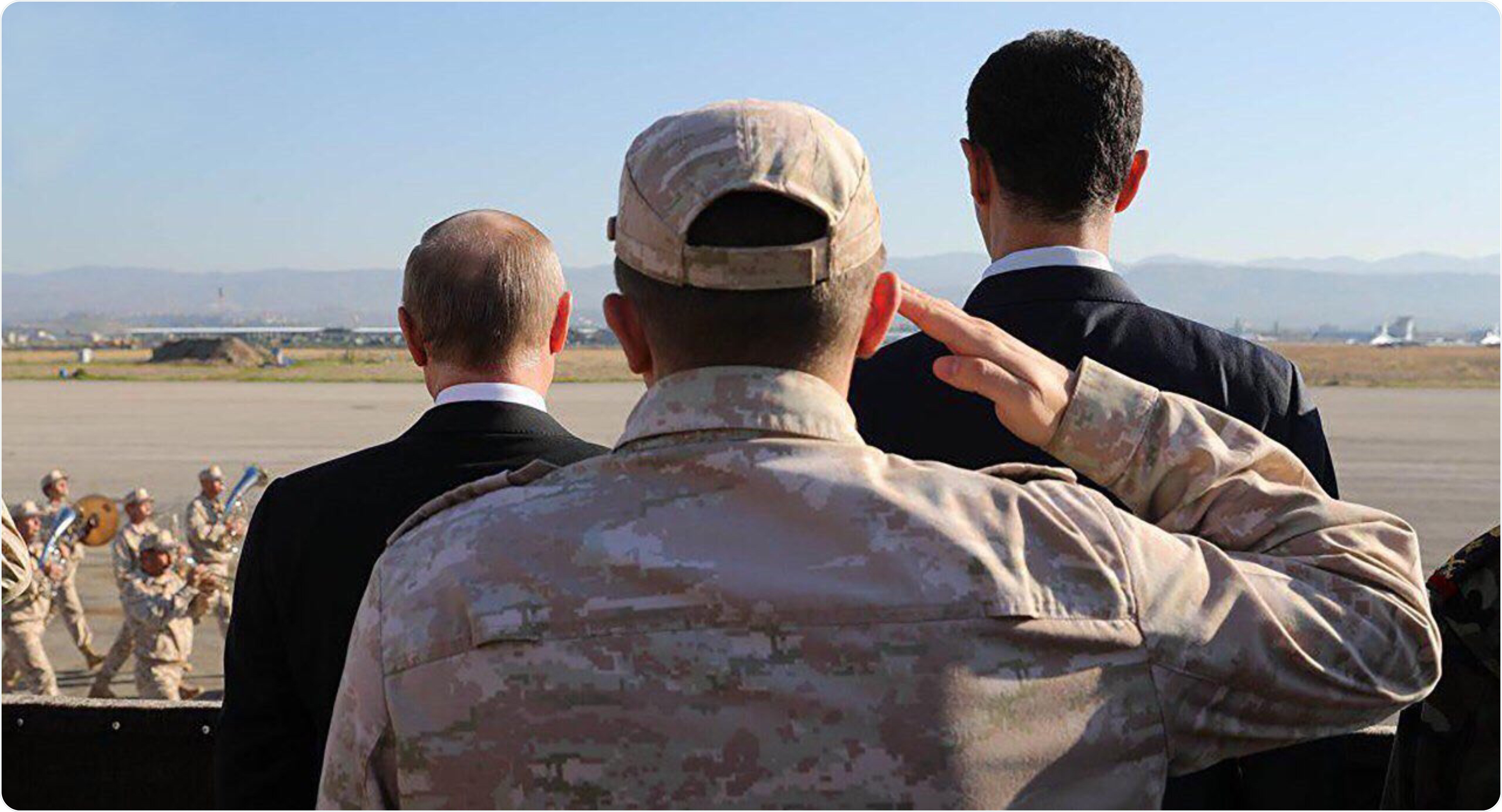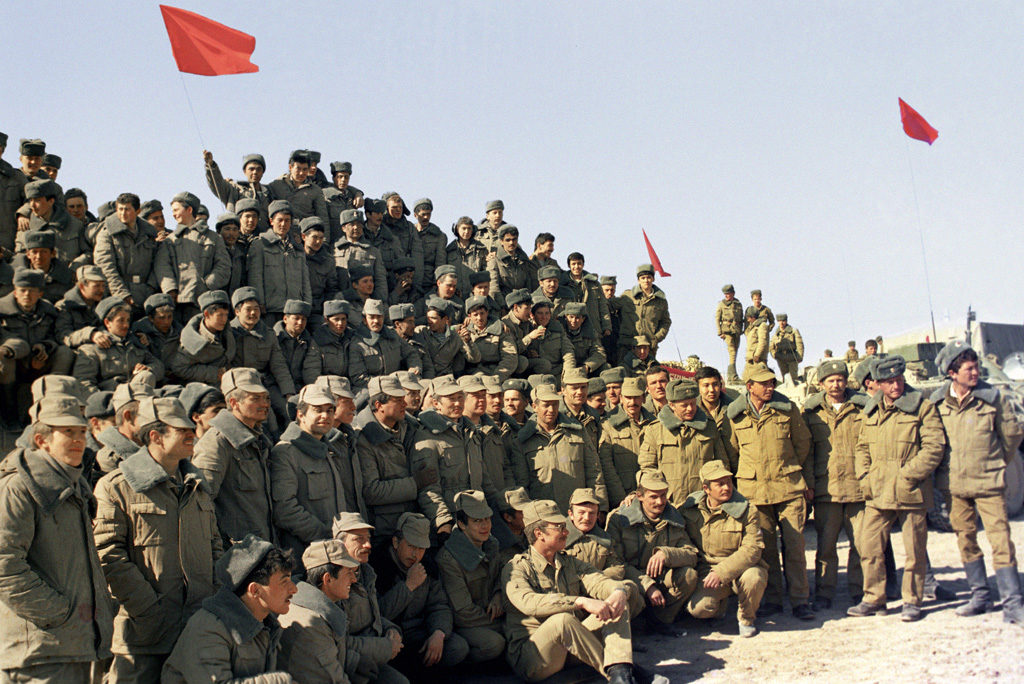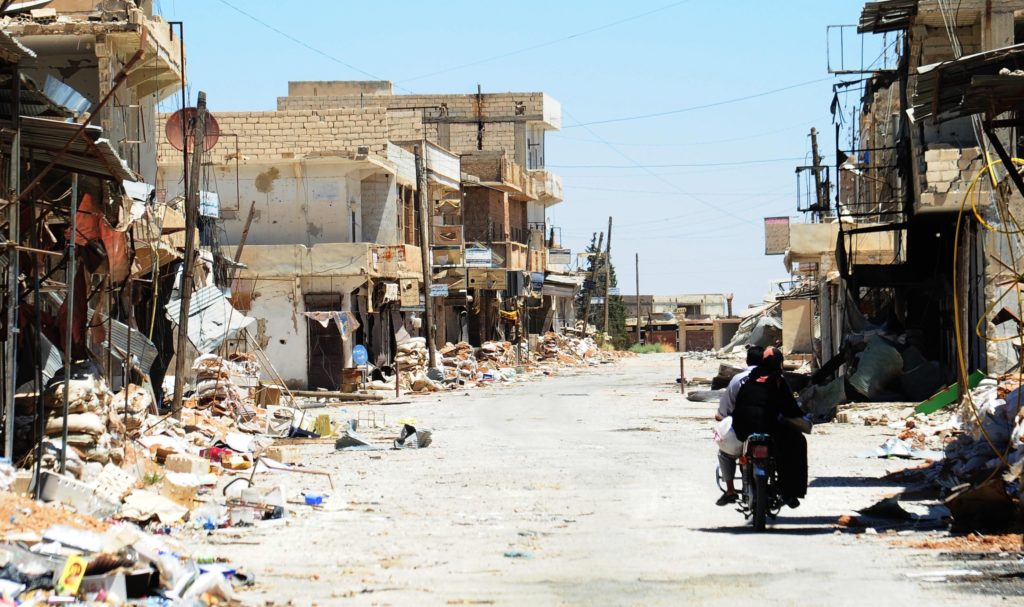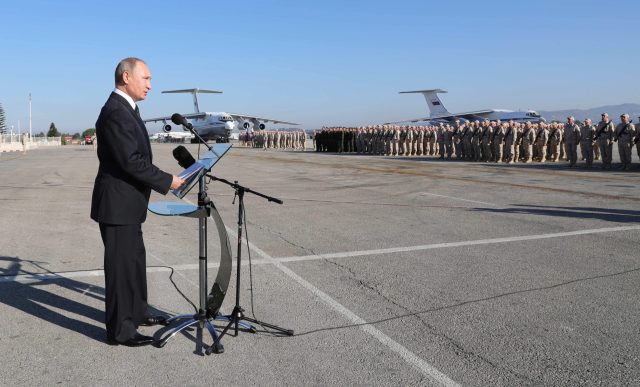Vladimir Putin addresses Russian forces at the Hmeimim air base in Syria on 11 December. He has ordered Russian troops to start pulling out of Syria. Credit: Mikhail Klimentyev/TASS/PA.


***
Hardly a day passes without stories about Russian subversive activities in western democracies. This involves the deliberate fomentation of ethnic, social or religious division, through ‘fake news’ or insidious tweaks to reality, and more sinister forms of interference in the 2016 US election.
Revealingly, in April, the Dutch election authorities were so concerned about Russian cyber interference that the country reverted to manual vote tallying. Paradoxically, many liberal Russians are unhappy about our belief that President Putin is so omniscient that he’s able to rig our elections as well as those in Russia itself.
This (western) anxiety is not misplaced, but constant emphasis on it risks neglecting proper focus on Putin’s primary ambition, namely to prise Turkey, Nato’s second largest military force, out of the organisation that Moscow sees as its geostrategic foe. Indeed, along with Pakistan, Turkey’s field army is larger than Russia’s – at about 750,000 in total.
We need to understand Russia’s role in the Middle East and, in particular, the thinking which is driving Putin’s overall goals.
Russian involvement in the region is of great antiquity. Russia’s double-headed eagle coat of arms derives from Byzantine Constantinople, with Muscovy claiming to be the ‘Third Rome’ once that empire had fallen to the Turks.
In the eighteenth and nineteenth centuries, an expansionary Imperial Russia repeatedly clashed with both Persia and Turkey, while asserting the right to protect Orthodox believers throughout the Ottoman Empire. The Tsars had their St Sergius church in Jerusalem, staking a religious claim in the Levant. After the Bolshevik Revolution, Russia became patron-in-chief of anti-colonialist forces on a global scale, even as the Red Army transformed Armenia, Azerbaijan, Georgia and Central Asia into Soviet Socialist Republics.

At the end of the Second World War, Stalin’s Soviet Union was eased out of Persia, and blocked after Turkey joined Nato in 1952. The greater Middle East became part of the Cold War chessboard. Stalin was among the first to recognise Israel (1948) but Nasser’s Egypt was more critical to Soviet intentions in the Mediterranean. Although Anwar Sadat would expel 20,000 Soviet personnel in 1972 – thereby becoming a western ‘stooge’, after the Yom Kippur War in 1973 – Moscow discovered a new client in Syria’s Hafez al-Assad. In 1957 he had spent nearly a year in Russia as a squadron leader learning to fly MiG-17s. The Soviet navy began to use the port city of Tartous as a substitute for the loss of rights in Alexandria.
Although the Soviets had other friends in the Middle East, notably Algeria and Marxist southern Yemen, their decade-long incursion into Afghanistan after Christmas 1979 dealt a massive blow to their standing in majority Muslim countries. Its cost would eventually necessitate Gorbachev’s reforms of the Soviet Union, from whose ruins a newly assertive Russia would emerge from a huge socialist federal chrysalis that positively discriminated in favour of other nationalities. The biographies of Khrushchev and Brezhnev underline this (the former was Ukrainian and Brezhnev was a Russian who claimed to be Ukrainian before reverting to his true nationality).
After the disintegration of the Soviet Union in 1991, Russia was physically separated from the Middle East by independent republics. Maybe that helped Russia to rebuild constructive relations with both Iran and Turkey, based on trade and tourism in the first case and civil nuclear technology transfer in the latter.
With hindsight two important things changed:
- First, with Russia’s busted economy degraded into ‘Upper Volta with nuclear weapons’, successive US presidents were too casual with Russian feelings, with Clinton patronising President Yeltsin as ‘good ’ol Boris’.
- Secondly, as the hyperpuissance, Washington kept chucking its weight around, notably in former Yugoslavia and Iraq, while its messianic desire to spread democracy began to lap around Russia itself in Georgia, Kyrgyzstan and Ukraine. Moscow’s assessment of the so-called Arab Spring was more sober than that of western enthusiasts, with Moscow’s experienced Arabists deciding that the western powers were “hapless sorcerer’s apprentices”[1. See Dimitri Trenin, What is Russia Up To in the Middle East?]. There was also a sense of being double-crossed. Though President Dmitri Medvedev implicitly licensed a limited Franco-British intervention to protect people in Libya’s Benghazi from Gaddafi in 2011, they did not sanction full-blown regime change – and his murder.

This was why President Putin decided to draw a line in the sand when, with a hot war raging in eastern Ukraine, he decided to stop the West from toppling Bashar al-Assad in Syria on behalf of rebels whose ‘moderation’ was largely illusory. A huge influx of Islamist jihadis from the Caucasus also caught his attention since it was better to kill them in Syria, rather than in the Russian motherland.
In 2014, Putin deftly defused the prospect of western intervention when he organised the removal of chemical weapons from Assad’s arsenal. A year later, when Assad faced defeat by Qatari, Saudi and Turkish-backed Islamist rebels, Putin dispatched forty combat jets, attack helicopters and S-300 missile batteries to restore Assad’s military fortunes, while co-ordinating joint ground operations with Shia forces from Iran and Lebanon. The campaign was also like a promo video for Russian strategic bombers, submarines and missile firing warships, which Putin hopes to sell around the Middle East.
As we saw last week, when Putin told his assembled troops that it was mission accomplished, to cries of ‘Urra!’, not even Assad was allowed to bask in Putin’s glory since a Russian officer kept him from the lectern where Putin was speaking (see the photo at the top of this page).
In Syria, Putin has added a major airbase to the naval facility at Tartous. More importantly, since Russia is an adult power with no permanent friends and no eternal enemies, the carnage Putin unleashed in Syria (with threats to return if the jihadis don’t lay low) has not harmed Russia’s image in the Middle East.
Putin is friends with everyone in the region…
- A sixth of Israel’s population are Russian-speakers, which is why Netanyahu has never uttered a peep about Crimea or Ukraine.
- In the new “R-OPEC”, the Saudis hang on what Russia’s energy minister Alexei Miller has to say about enduring production cuts.
- Russian relations with Iran are closer than ever, even if Putin tacitly allows Israel’s airforce to thwart Iranian attempts to create a bridge to Hizbollah via Syria.
- With the Gulf Co-operation Council in turmoil thanks to Saudi recklessness, Qatar is the largest Gulf Arab investor in Russia.
But the most interesting friend is President Erdogan of Turkey. Having been a holiday companion to the vacationing Assads, he became their most implacable opponent.

A friend recently met a KGB defector in the US who attended spy school with the young Putin. Was he ambitious? Obviously. Opportunistic? Certainly. But Putin’s most striking ability was to convince his KGB superiors that everything he did was the product of deep strategic insight.
In November 2015 Turkish jets shot down a Russian combat fighter when it crossed Turkish airspace for a couple of minutes. One of the pilots was murdered by Erdogan’s Syrian Turkmen clients when he ejected from the plane. A year later, Andrei Karlov, the Russian ambassador, was shot dead by a Turkish policemen shouting ‘don’t forget Aleppo’ while he visited an art gallery in Ankara.
After discouraging Russians from basking on beaches at Dalyan, embargoing fruit imports and allowing the Syrian Kurdish YPG to open an office in Moscow (there has been a PKK one there for years), Putin rapidly repaired relations with the penitent Erdogan.
For the Turkish president’s relations with the EU had gone into the freezer, with EU accession indefinitely postponed as Turkey succumbs to authoritarian Islamism. Erdogan also believed that the US was not only aiding and abetting the Syrian Kurds to establish an autonomous statelet on his southern border, but was responsible for the 2016 failed coup against him.
Why else did Washington refuse to extradite the Gülenist leader Fethullah Gülen from his redoubt in Pennsylvania, the man who Erdogan thinks was ‘really’ behind the 2016 coup? Former US general Mike Flynn’s corporate intelligence company was paid $650,000 to smear Gülen through a film. A rich ally of Erdogan has recently offered an $800,000 bounty for the heads – figuratively speaking – of a former Pentagon official and the ex-head of the CIA in Turkey for their alleged role in the coup. What is pretty certain is that the Russian SVR (external intelligence) got wind of the coup, helpfully informing Erdogan of who was involved so he could let it unfold so as to better crush it and anyone else who had crossed his path.
Putin has successfully co-opted Erdogan, along with Iran and Syria, into the peace talks he is holding in Astana. The trick will be to keep Assad down, to restrain Iran, and to prevent a war between Kurds and Turks. Then he and the Chinese will reap the big $250 billion prize of making Aleppo – and other Syrian cities – rise up all shiny again like Grozny from the ruins. Chechen engineers are already there, along with their Arabic-speaking and Muslim military policemen.
Turkey is also a candidate for membership of the Shanghai Co-operation Council, the Sino-Russian authoritarian rival of western alliances to which Iran also adheres. Turkey is part of the ‘South Stream’ gas pipeline, which along with ‘Nord Stream’ to Germany, is vital to Putin’s efforts to bypass Ukraine as gas flows to Europe.
Erdogan has paid $2 billion for Russian S-400 anti-aircraft missile batteries, which the US says are incompatible with Nato systems. If the US refuses to sell Ankara F-35s in retaliation, then the Turks may turn elsewhere. The Russians make good stealth fighters too. Tactical Russian military co-operation with Turkey around Idlib in northern Syria to rein in the Syrian Kurds has forced the US to stop supplying the latter with weapons now that the fight against ISIS is effectively over. Maybe Erdogan is merely playing a Russian card to force the US to ditch the Syrian Kurds? Maybe he is complicit in Putin’s major gambit of levering Turkey out of Nato entirely?
While there are many voices in the US calling for Turkey to be ejected from Nato, on the grounds that its values are incompatible with the democracies, one can hear many in Turkey calling for it to leave Nato too. This is despite the fact that Cyprus (a Greek client) would replace her.
Consider a recent incident. A Nato computer exercise in Norway last month used Kemal Atatürk (the Republic’s great founder) and Erdogan himself as the ‘enemy’, leading to the immediate withdrawal of 40 Turkish officers from Stavanger and unified outrage across the Turkish political spectrum. A mystery social media account in Erdogan’s name then published anti-Nato messages. His main adviser called for Turkey to leave Nato. The alliance blamed a Norwegian contractor of Turkish origin for this major blunder; the Turks said he was a Gülenist. Maybe he was a Russian at a computer terminal?
And it is not just Turkey the US should worry about. Egypt and Russia have signed a five-year agreement to share their military bases and air space, which in practice means that Russian bombers will be assisting General Haftar in Libya as well as helping President Sisi eradicate ISIS in Sinai, something Israel regards with equanimity.
While Sergei Lavrov’s very capable Foreign Ministry team never seem to sleep, and nor do that of the long-time Putin friend Sergei Naryshkin at the SVR (foreign intelligence service), the Trump administration has yet to appoint Rex Tillerson’s assistant secretary for Near Eastern Affairs, and the ambassadorships to Saudi Arabia, Turkey, Jordan, Egypt and Qatar are vacant.
Geopolitics, like time, waits for no man. Putin knows that, as he seeks re-election next year having restored respect for Russia in the wider world.
> Read Allan Mallinson’s sitrep on Nato, written in early October; ‘Keeping the Russians out, the Americans in, and the Germans down. How’s Nato doing?‘.










Join the discussion
Join like minded readers that support our journalism by becoming a paid subscriber
To join the discussion in the comments, become a paid subscriber.
Join like minded readers that support our journalism, read unlimited articles and enjoy other subscriber-only benefits.
Subscribe